You can achieve many benefits from using natural shampoo alternatives like increased hair strength, improved scalp health, greater nourishment for each strand of hair, and a sense of cleaner hair.
Some natural ingredients have been proven to make the hair shinier, such as a mixture of egg yolk and olive oil. Natural shampoo alternatives can also benefit people with sensitive skin or allergies because these natural ingredients contain no harsh chemicals or detergents that may result in irritation.
In this article, we dig into the details of the usage of different natural shampoo alternatives. These include apple cider vinegar, aloe vera, soapwort, and other natural options you can use for taking care of your hair. Let’s go!
Start Reducing the Use of Shampoo
The problem with shampoo is that we use too much of it. Some people may wash their hair more than once per day, which may be an overkill.
It may surprise you to hear this, but it is possible to care for your hair without shampoo. Give your hair that TLC it needs with some of these all-natural remedies.
Give up Shampoo Completely
What would happen if you didn’t use commercial shampoos at all? Many people have taken on such a challenge, referring to it as the “no-poo method,” which has worked well. When the difficult transition period is over, the positive effects will show.
Even if your hair becomes too greasy or too dry for a few weeks, it will start making oils at a slower rate, making it soft and wavy. The no-poo method is a lot less expensive than buying organic shampoo, and it’s a guaranteed way to regulate the ingredients that come into direct contact with your hair.
Follow this simple two-step approach to see if the no-poo method works for you (If you’re not ready to give up shampoo entirely, follow this same technique between washes to reduce the shampoo you use.)
1. “Shampoo” made using baking soda. Baking soda’s versatility allows it to be used in place of shampoo entirely, as it removes styling product buildup and naturally results in more manageable hair. When your scalp is damp, sprinkle one tablespoon of baking soda onto it, massage it into your roots, and rinse as you would with regular shampoo.
2. Rinse with apple cider vinegar. After that, rinse your hair with apple cider vinegar, which helps balance the baking soda’s alkalinity, eliminates buildup and residue, and closes the hair cuticles. After you’ve washed your hair with baking soda, pour around 12 cups over your hair and rinse.
Natural Shampoo Alternatives
1. Shampoo Bars
Shampoo bars might be a great alternative to liquid shampoo. These bars are more environmentally friendly than their liquid counterparts because of less packaging, extended shelf-life, and sulfate-free formulations.
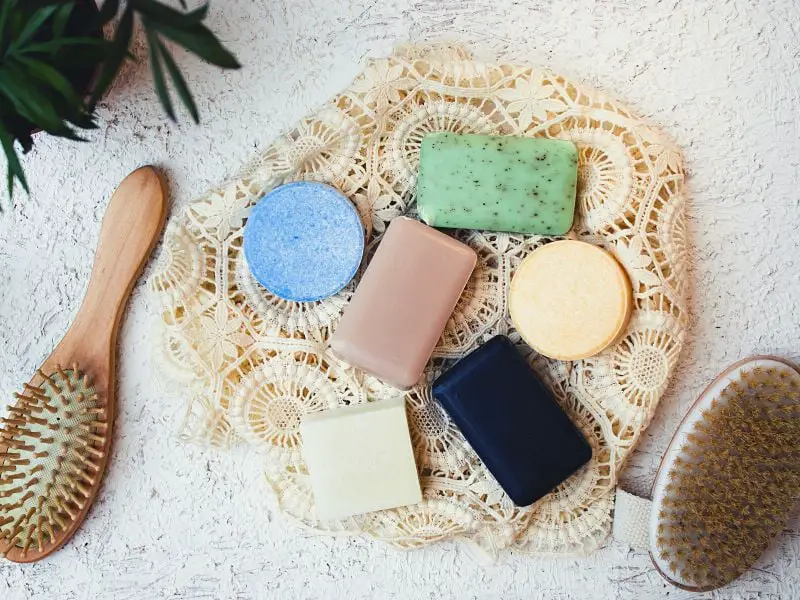
How to apply:
- Wet hair with warm water.
- Rub a bit of natural shampoo or soap bar in your hands to generate a lather. This is one easy way to create the foam needed for washing your hair.
- Massage into the scalp, then rinse well with cool water, repeating if necessary as you usually would with shampoo.
2. Aloe Vera
Aloe vera has antibacterial and antiseptic properties and is emollient and hydrating. It has even been proven to help with cellular regeneration in several studies.
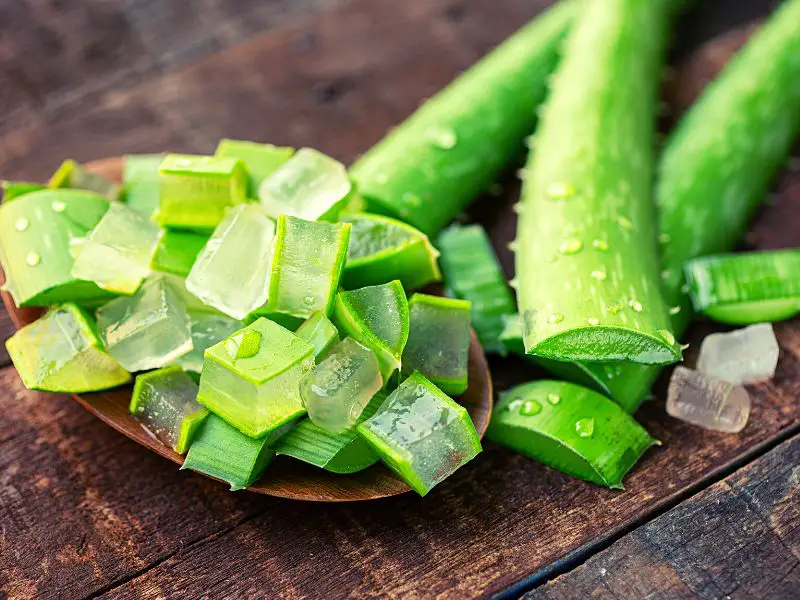
How to apply:
- In between washings, apply aloe gel to your hair and scalp and rinse thoroughly as you would with shampoo.
3. Soapwort
This plant has anti-fungal, antibacterial properties. Soapwort may be used as an alternative to shampoo to clean your hair, although it must be rinsed out well afterward because of its soapy nature.
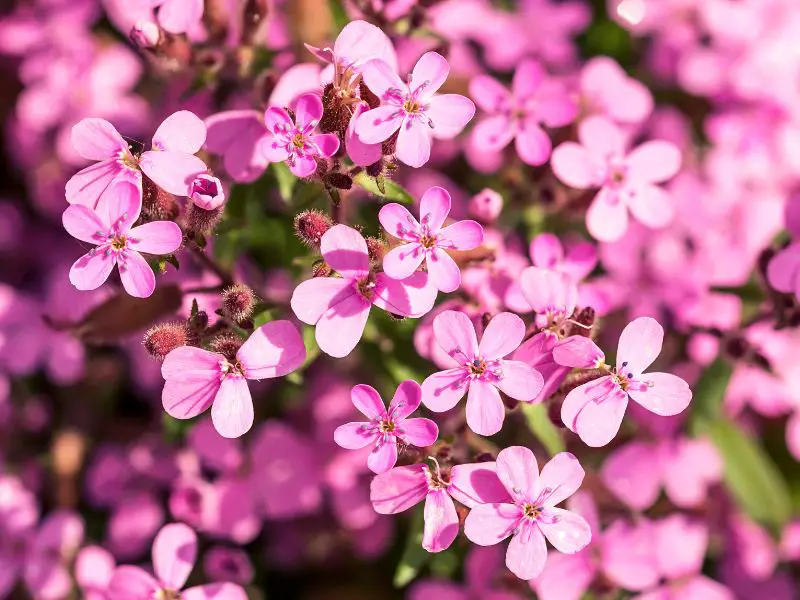
How to apply:
- In a small container, mix flour, baking powder, two tablespoons of fresh or one tablespoon of dried soapwort root or leaves and stems, a cup of warm water, and a little soap.
- Then stir to make the suds form. After straining, massage about half a cup of the mixture into your scalp and then wash it off. The rest of the mix can be kept in the fridge for up to a week.
4. Calendula
This medicinal plant is excellent for sensitive skin because of its stimulating, anti-inflammatory, and demulcent characteristics.
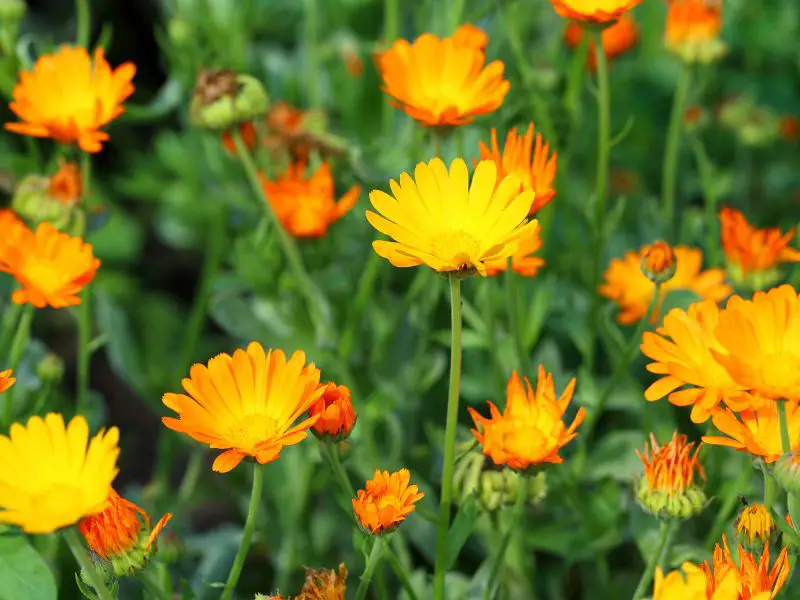
How to apply:
- Fill a glass jar halfway with dried calendula flowers and cover it with an unrefined oil like avocado.
- Put the container’s lid and store it in a dark spot for two to three weeks. Make sure to shake the jar daily for the first week.
- Strain the oil into a clean glass jar and apply it like you normally do with a shampoo.
5. Essential Oils
Many essential oils have health benefits for the hair and their pleasant scents. To avoid contamination, it’s necessary to buy pure essential oils from a trusted health-food store.
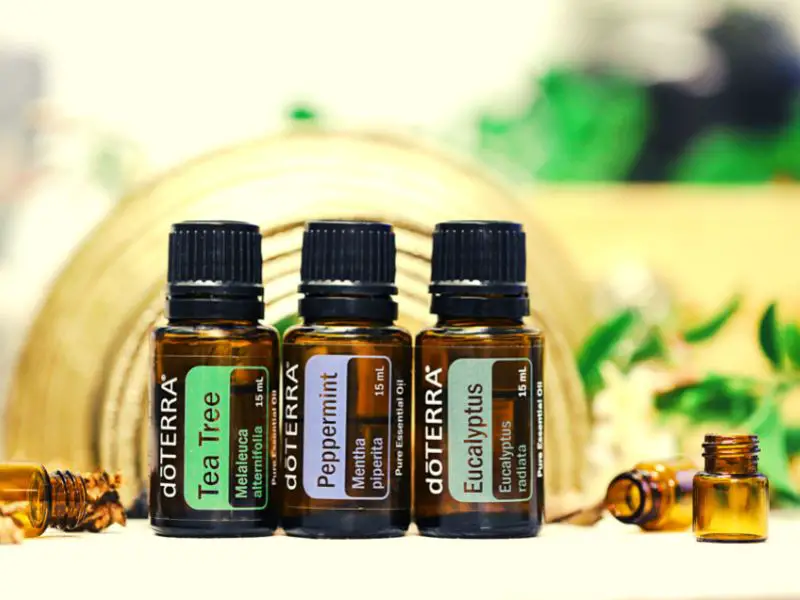
How to apply:
- To combat or treat dandruff, combine two drops of tea tree essential oil with two tablespoons of baking soda and water, then apply as you would do in shampoo to the affected area.
- To achieve lustrous, silky strands, apply one drop of rosemary or lavender oil to a natural bristle hairbrush and delicately brush your hair from the scalp to the ends, starting at the roots.
6. Conditioning Hair Packs
Conditioning hair packs should be massaged into clean hair to allow natural creams and oils to penetrate the epidermis and work their magic.
How to apply:
- Stir equal parts of the following products with a fork.
- Then apply to your damp hair.
- Put on a plastic shower cap or wrap your hair with plastic wrap to help keep the heat while also opening up the hair follicles to allow for deep conditioning.
- Wait for about 15 minutes and rinse thoroughly with cool water.
7. Apple Cider Vinegar
Although apple cider vinegar is typically hailed for its immune-boosting properties, it turns out that it can also provide relief from typical hair troubles such as dandruff and excess oil.

How to use:
- Combine two and four tablespoons of apple cider vinegar (depending on how oily your hair is) with one and a half cups of water in a spray bottle or other container.
- Massage the mixture into your hair from root to tip. We recommend using a spray bottle to avoid over-saturation for the best results.
- Let it set aside for five minutes before rinsing with warm water.
Frequently Asked Questions (FAQs)
Author’s Note
Using natural alternatives is an effective method for replacing harmful chemical compounds found in conventional shampoo. Natural products such as aloe vera, soapwort, conditioners made from essential oils, and apple cider vinegar can be used to achieve great-looking and healthy hair.
What do you think? Will you try out these alternative methods? Are you using shampoo or other hair care products that contain sulfates? If not, please share how natural ways work for your hair type in the comment section below. We hope this post brings you some ideas for your hair care.
Eco-Advices You’d Love to Know and Share to Lead a More Sustainable Life: Eco-Friendly Habits, Mindful Consumption, Living Within Your Means by Going Green, Sustainable Technologies

